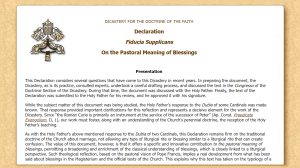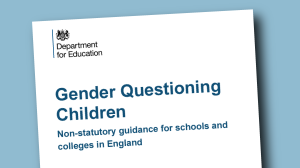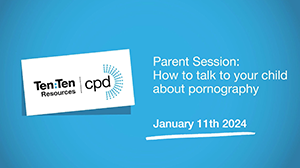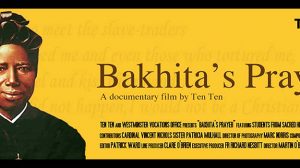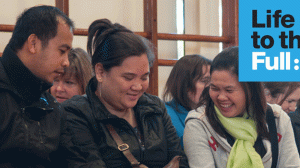
In our Year 11 Life to the Full session entitled ‘Birth Control’, pupils are invited to discuss artificial and non-artificial methods of family planning, which can give rise to some heated debates! Appendix 4 of that session offers a deep dive into the main question: Why NFP instead of artificial contraception?
This article does not intend to give comprehensive answers, but instead offers some simple principles to consider. So let’s dive in…
The Main Question: Why NFP instead of artificial contraception?
Since both are ways of a couple avoiding becoming pregnant, what’s the difference? Surely if they love each other, then isn’t how they plan their family irrelevant?
Using artificial contraception is a technological advance that has transformed our thinking and behaviour in a dramatic way since the 1960s. Most people tend not to even think to question it because it is so much a part of our world. In addition, the idea that the Catholic Church – which promotes NFP – might have something worthwhile to say about sexual morality is hard for many people to take on board!
The Nature of True Love
If two people are married and truly love each other, why do specific methods of family planning matter?
Love really is central. This is a great place to start. But then we have to ask, what is true love? True love means to give yourself completely for the good of another. It is free, full, faithful and fruitful. True love gives absolutely everything. It’s what married love is all about. It’s also why the Church teaches that sex belongs within marriage between a man and woman: the true spousal meaning of our bodies intends sexual union to be both fully open to the life-giving potential of sex and to fully express the union of the couple. Oral sex and masturbation cannot do that, as their goal is sexual gratification aside from the life-giving potential and unitive meaning of sex.
Another reason the Church says sex should always be about total self-giving is that it engages the very core of who we are through our capacity to become the parents of a child: sex can lead to a new someone existing! That possibility requires true love because our sons and our daughters are worthy of being welcomed and loved.
Three Common Misconceptions About the Catholic Church and Birth Control
Doesn’t the Catholic Church teach that sex is only for having children?
The Church does say a couple in their lovemaking should remain open to the gift of life and should not block that gift through artificial contraception. But the Church does not say the only motivation for a couple to have sex should be to get pregnant. Seeking a real union together should always be an aspect of sex and desiring intimate pleasure is also a valid motive. In fact, NFP specifically allows a couple to have sex during the infertile period (when pregnancy is almost always impossible) which shows the value placed on sex as an expression of love.
Doesn’t the Catholic Church forbid any kind of birth control?
The Church does not support artificial birth control, but it does encourage couples to engage in discernment about their family size by using natural methods of birth control. It approves of Natural Family Planning, a World Health Organization approved method. The Church encourages couples to appreciate the immense gift and responsibility of becoming parents, which means carefully planning the timing and spacing of children and taking into account things like physical and emotional health and financial considerations. Couples are encouraged to plan the births of their children with all these factors in mind.
Aren’t Catholic couples expected to have as many children as they can?
It is true that the Church emphasises the importance of welcoming new life and supports the logical conclusion of large families. However, each couple are encouraged to wisely and prayerfully consider their own circumstances in deciding when or if to have more children. Couples are not obliged to have as many babies as possible.
A Scenario to Demonstrate the Different Motivation and Means by Which Pregnancy is Avoided through NFP vs. Artificial Contraception
If two couples are married and both don’t want to get pregnant and one is using NFP and one is using artificial contraception, what’s the difference?
‘Dave and Carol have been married for three months. They have just moved house, started new jobs and Carol recently moved back from abroad where she had been working. They feel they need time to get settled both financially and in their relationship before starting a family.’
Option 1: They decide to use artificial contraception. Carol goes on the pill and Dave agrees to use a condom just to be extra safe. This means they can have sex whenever they want.
Option 2: Carol and Dave decide to use Natural Family Planning. During the fertile period they abstain from sex, but are able to have sex during the remaining 20 or so days of each month.
So what does this mean? First, the same goal applies for both couples – they want to avoid pregnancy and they have a valid reason to do so. However, the MEANS to that goal is different.
In Option 1, Carol and Dave are saying ‘yes’ to the intimate and pleasurable aspects of sex but ‘no’ to its life-giving power. They are acting to block each other’s fertility. This means that they aren’t giving themselves completely to each other. When they have sex, they are saying, ‘I am all yours – er, apart from my fertility’. Artificial hormones and latex are needed to keep that aspect out of the picture – and should pregnancy occur, they will know it is due to ‘contraceptive failure’.
In Option 2, Carol and Dave are not acting to block fertility. During the fertile time, they find ways to express their love without having sex. When they do have sex during the infertile time, they know pregnancy is unlikely, but sex remains both an expression of complete love and is open to the life-giving power that is part of sex. Through sex, each says, ‘I am all yours, with nothing held back’. They are not anticipating becoming parents, but if they do, they are unlikely to think of it as the end of the world but rather a welcome surprise come earlier than expected in their family timeline.
Suggested Links for Further Research into these areas
These issues have been discussed and debated by people of all faiths and none for generations. Below is a list of links which we share with Year 11 pupils to aid them in their own exploration of the different viewpoints and opinions they might come across. We encourage young people and adults alike to apply critical thinking when researching these topics, giving consideration to societal bias towards contraception.
Articles on the history of the contraceptive pill:
- A History of the Pill (Guardian)
- Call the Midwife: the real history of the contraceptive pill (Guardian)
- The pill, sex and women’s liberation (Guardian)
Male contraception:
- What is the male pill? (NHS)
- Male pill – why are we still waiting? (BBC)
- Men Abandon Groundbreaking Study on Male Birth Control, Citing ‘Mood Changes’ (Vice News)
Contraception:
Natural Family Planning:
- Pros and Cons of Natural Family Planning (Mia Hemstad)
- Why We Hate Natural Family Planning (Ascension Presents)
- Secular Press Suggests Time is Ripe to Rediscover NFP (For Your Marriage)
- Natural Fertility Matters – NFP information and advice about using the Creighton scientific method
- Natural Family Planning Teacher’s Association – Site for teachers and couples
- Fertility UK – Non-religious promoter of NFP in the UK, purely from a health perspective
Having Children:
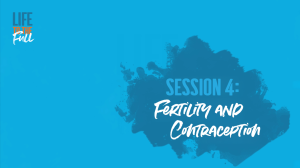
Session 1: Fertility And Contraception
The session invites students to reflect on the gift and responsibility of fertility. They will consider what they already know about how different contraceptives function and their effectiveness and learn about the potential drawbacks. They will be invited to reflect on Catholic teaching that married couples should choose Natural Family Planning instead of contraception as an expression of responsible parenthood.
Go to Session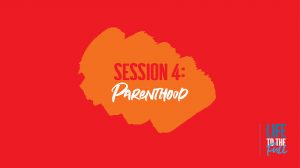
Session 2: Parenthood
Following after a film where a teenage girl has a blazing row with her Dad and realises she had been taking him for granted, this session considers what it means to be a parent, including issues such as love, dedication, obligation, commitment, sacrifice and a lifetime of responsibility. Marriage is positioned as the ideal foundation for parenthood and family life, and God as our unconditionally loving Father.
Go to Session
Session 3: Birth Control
This session holds fertility up as a precious gift to be protected, nurtured and valued. Mairi and Nathan lead pupils through an interview with Em and Sammy, a married couple who tried artificial contraception before moving on to use Natural Family Planning as they grew to appreciate that sex includes the gift of fertility. This led them to a deeper reflection on how love, sex and procreation are all intrinsically linked - because that’s how God intended it to be. Through activities and discussions, pupils end the session with an invitation to consider what they want their future lives to be like.
Go to Session
Session 4: STIs
In this session, pupils meet Bobbi, who was raised in East London with strong Indian cultural values. She describes how she felt torn between two worlds: wanting to push boundaries, but also feeling a lot of pressure to not bring shame on her culture, her community and her family. This led to a lot of risky behaviours, including promiscuity, drug misuse and addiction, various Sexually Transmitted Infections (STIs) and two abortions. Through Bobbi’s story, activities and discussions, pupils will consider how the reality of STIs connects to deeper questions about sexual choices and consequences, and how to rethink behaviour that causes harm.
Go to Session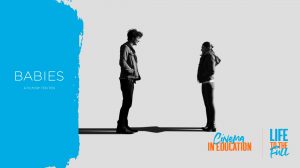
Cinema In Education
Session 1: Babies
This cinema-in-education session is based on the film Babies which is told in two parts.
Go to Session














